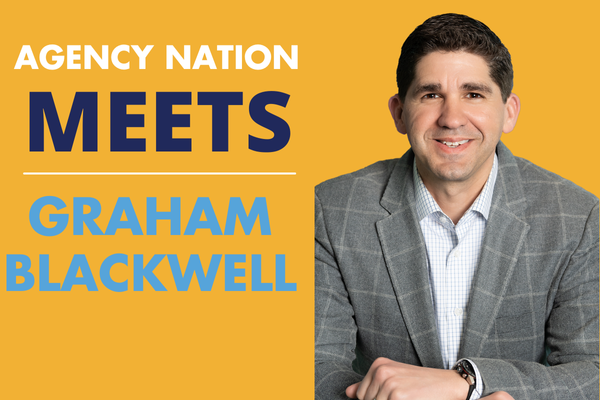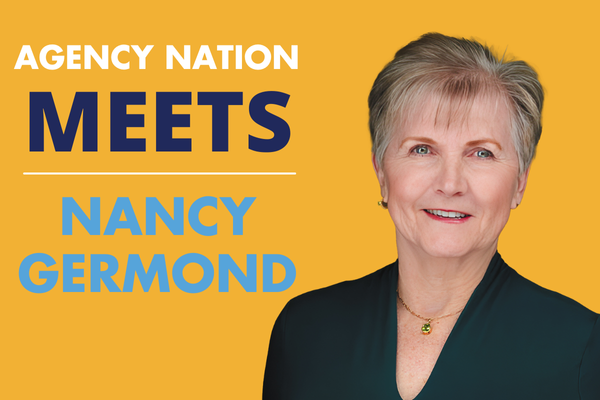Sales, Service and Satisfaction Under a Personal Umbrella

By: Olivia Overman
Knowing how a personal umbrella policy fits into your client’s lifestyle is key to understanding why they should purchase one, as well as if you should offer them one at all. Having that conversation, getting to know the client and asking what may seem like basic questions—such as, “How many cars do you own?”, “Do you have a boat?” and more—can help ensure you’re providing the best service to your client and, more importantly, adequately protecting them.
As we deal with the global pandemic, “this is the absolute best time for independent agents to get to know their clients,” says Mary Qualls, chief underwriting officer, Vault Insurance. “People are at home, for the most part, and have more time to read their insurance policies and comprehend exactly what coverage they need.”
Here are four ways agents can take the helm and ensure clients are covered with a personal umbrella policy:
1) Build personal relationships. “It’s all about personal relationships. Intention. Reaching out and having a conversation,” says Daina Kawchack Smith, chief marketing officer, PersonalUmbrella.com. “Call your insureds and give them a reason to call you when they have a question instead of dialing a 1-800 number.”
While typically there is an annual check-in between agents and clients, because of the times we are in, it is more beneficial for both parties to communicate more than just once a year. “Know your clients, get involved with them and be a proactive part of what they’re going through,” Qualls says.
Keeping up with clients and understanding any changes in the household from an auto or property perspective can help ensure there is not a coverage gap.
2) Add value by educating. It may be easy for a client to comprehend a loss from a home fire or a flood, but “it’s much harder to convince someone of how much they can lose out of pocket in a lawsuit,” says Hayden Kopser, cofounder and president, North Improvement, LLC. “This is where an agent or broker has to work very closely with a carrier and provide hard dollar examples of a similar client who has had a claim against them.”
By working with carriers, agents can make use of marketing and sales resources to help bring the matter home. “Most carriers will have an online library or will offer webinars—both for the agent and for the insured,” Smith says. “Insureds trust their agent’s guidance, so they need to be sure they have the knowledge to lead them.”
3) Don’t shy away from offering coverage. “If you’re quoting their home and auto, you almost certainly have the information you need to quote their umbrella policy,” Kopser says. While a personal umbrella policy may not be on everyone’s list when seeking insurance coverage, providing a quote that includes even a basic umbrella limit may help start the conversation. “Most clients who end up buying it or end up buying higher limits agree it’s kind of a no-brainer to get millions of dollars of extra coverage for a few hundred bucks,” Kopser explains.
It’s all about understanding the needs of clients and starting the conversation that they are most likely not going to come to you asking for or understanding.
“It sounds simple, but I suggest making sure agents are always offering a personal umbrella policy to their home and auto customers,” says Eric Raudins, vice president, specialty personal lines, RLI Insurance Company. “Studies show that only 10% of the population has an umbrella policy—I believe this is extraordinarily low given the value and overall importance of the product to consumers.”
4) Understand changing risks. “An emerging market trend is an increase in the number of people establishing home-based businesses,” Raudins says. “Unfortunately, in some instances, it is out of necessity as the pandemic has roiled the employment markets.”
As the endorsed provider and partner of personal umbrella coverage to the Big “I,” RLI, along with other carriers, offer a home-based business insurance product to cover such businesses, but “it’s important that consumers understand that their personal umbrella policies typically do not cover this type of exposure,” Raudins explains.
Additionally, in relation to COVID-19 liability coverage, “it’s not cut or dry on every policy. There may be some that exclude, there may be some that think they exclude, but there’s silent coverage depending on how a disease is contracted,” Kopser says. “That’s getting into the court system.”
“Personal umbrella insurance is the easiest and most cost-efficient way to protect a client’s net worth from lawsuits and is extremely affordable for most people,” Kopser adds. “It is a commonsense solution to fill coverage gaps and provide enough coverage for clients’ actual needs and lifestyle.”
Olivia Overman is IA content editor.










